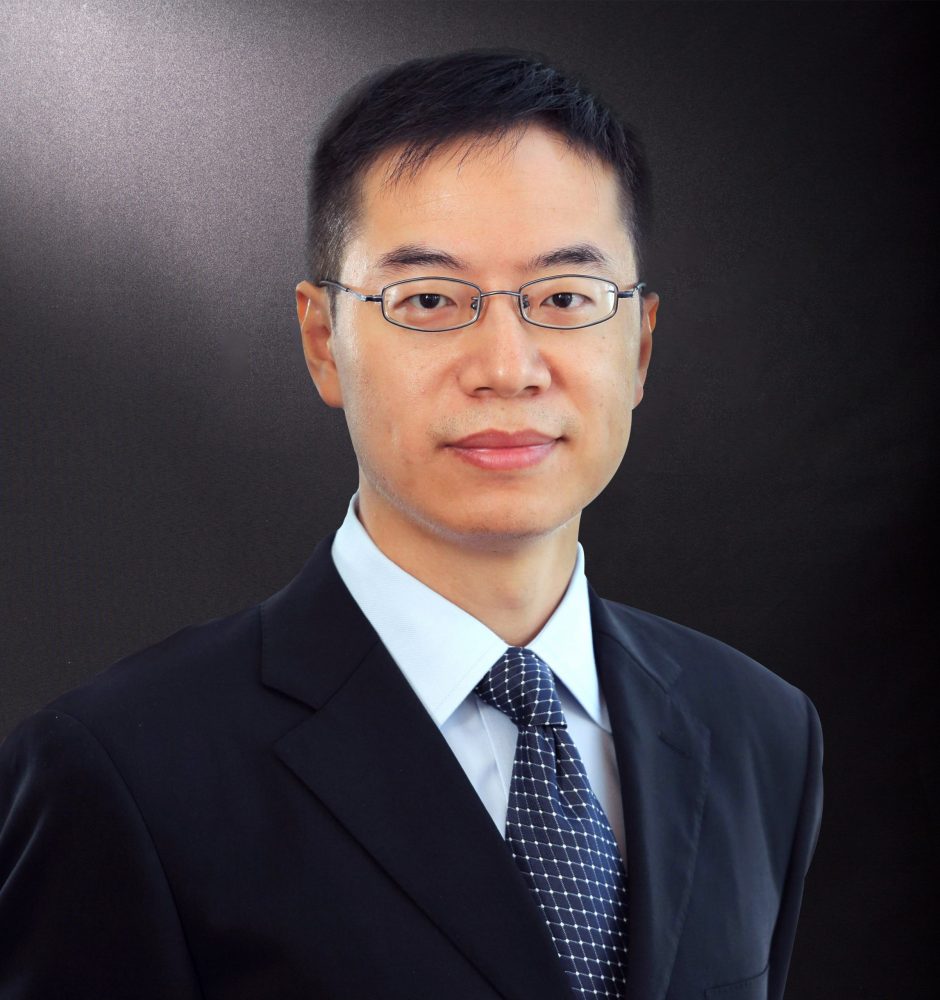新创企业经常面对资源短缺问题,影响其生存和发展。本研究通过分析一个针对中国私营创业者的大型调查,就新创企业如何更轻易获得外部资源提供新的见解。我们发现,在中国,相对于不信佛的创业家,信佛的创业家较注重对外活动,并更有可能获得社会政治上的认受性,从而有较大机会获得外部资源,例如银行贷款。另一方面,若新创企业所在地区的政府干预较少,且市场机制发展较成熟,将减低信佛的创业家对提高社会政治认受性来获得外部资源的依赖,其对外活动的投入力度亦有所减弱。

- PhD: Hong Kong University of Science and Technology
- Master: Nanjing University
- Bachelor: Nanjing University
Yi Tang currently is an Associate Professor (with tenure) in Strategy in the Department of Management, HKU Business School. Yi Tang received his PhD from Hong Kong University of Science and Technology (HKUST) in 2009. Dr. Tang’s research and teaching interests reside in the areas of strategic leadership, firm innovation, corporate social responsibility, and interfirm social networks. His research output has been published in leading management journals, including Academy of Management Journal, Strategic Management Journal, Organization Science, Journal of Management, Journal of Management Studies, Journal of Business Venturing, among others.
Dr. Tang currently sits on the editorial boards of Strategic Management Journal, Organization Science, Journal of Management, and Journal of Management Studies. He was also a guest editor for special issues for Journal of Management Studies, Long Range Planning, and Family Business Review. Dr. Tang is an active member of Academy of Management (AOM) and Strategic Management Society (SMS). Dr. Tang has taught Strategic Management and its related subjects for the PhD, DBA, MBA, MSc, and Undergraduate levels.
Strategic Management, Entrepreneurship, International Business, Organization Theory
Strategic Leadership; Corporate Social Responsibility; Entrepreneurship and Firm Innovation; Social Networks within and across Firms
- Chu, J., Tang, Y., & Wan, G. (equal contribution) Do Female State Officials Improve Corporate Social Responsibility in Their Jurisdictions? A Disadvantage-Prohibiting Perspective. Journal of Management Studies, forthcoming.
- Chen, Y., Fu, R., Tang, Y., & Zhao, X. (equal contribution) 2025 CEOs’ Pre-career Exposure to Religion and Corporate Tax Avoidance. Journal of Management Studies, 62(2): 748-774.
- Kowalzick, M., Ahrens, J., Lauterbach, J., Tang, Y. 2024. Overconfident CEOs in Dire Straits: How Incumbent and Successor CEOs’ Overconfidence Affects Firm Turnaround Performance. Journal of Management Studies, 61(5): 1985-2032.
- Gu, F., Leung, F., Wang, D.T., &Tang, Y. 2024. Navigating the Double-Edged Sword: Executive hubris and its impact on customer acquisition and retention. International Journal of Research in Marketing, 41(2): 362-382.
- Weng, D., & Tang, Y. 2024. How Do Status Differentials Affect the Unplanned Dissolution of Alliances? Journal of Management Studies, 61(4): 1590-1617.
- Ren, S., Sun, H., & Tang, Y. 2023. CEO’s Hometown Identity and Corporate Social Responsibility. Journal of Management, 49(7): 2455–2489.
- Hodgkinson, G. P., Burkhard, B., Foss, N. J., Grichnik, D., Sarala, R. M., Tang, Y., & Van Essen, M. (equal contribution) 2023. The heuristics and biases of top managers: Past, present, and future. Journal of Management Studies, 60(5), 1033-1063.
- Xu, Z., Tang, Y., & Liu, Z. 2023. Buddhist Entrepreneurs, Managerial Attention Allocation, and New Ventures’ Access to External Resources. Journal of Management Studies, 60(2): 454-494.
- Chen, G., Luo, S., Tang, Y., & Tong, J. (equal contribution) 2023. Back to School: CEOs’ pre-career exposure to religion, firm risk-taking, and innovation. Journal of Management, 49(3): 881-912.
- Ouyang, B., Tang, Y., Wang, C., & Zhou, J. (equal contribution) 2022.No-fly zone in the loan office: How CEO risky hobbies affect credit stakeholders’ evaluation of the firm. Organization Science, 33(1): 414-430.
- Fu, R., Tang, Y., & Chen, G. 2020. Chief sustainability officers and corporate social (Ir)responsibility. Strategic Management Journal, 41(4): 656-680.
- Tang, Y., Mack, D., & Chen, G. (equal contribution) 2018. The differential effects of CEO narcissism and CEO hubris on corporate social responsibility. Strategic Management Journal, 39(5): 1370-1387.
- Chen, G., Luo, S., Tang, Y., & Tong, Y. (equal contribution) 2015. Passing probation: Earnings management by interim CEOs and its effect on their promotion prospects. Academy of Management Journal, 58(5): 1389-1418.
- Tang, Y., Li, J., & Yang, H. 2015. What I see, what I do: How executive hubris affects firm innovation. Journal of Management, 41(6): 1698-1723.
- Tang, Y., Qian, C., Chen, G., & Shen, R. (equal contribution) 2015. How CEO hubris affects corporate social (Ir)responsibility. Strategic Management Journal, 36(9): 1338-1357.
- Tang, Y., & Wezel, F. (equal contribution) 2015. Up to standard? Market positioning and performance of Hong Kong films, 1975-1997. Journal of Business Venturing, 30(3): 452-466.
- Shen, R., Tang, Y., & Chen, G. (equal contribution) 2014. When the role fits: How firm status differentials affect corporate takeovers. Strategic Management Journal, 35(13): 2012-2030.
- Li, J., & Tang, Y. 2010. CEO hubris and firm risk taking in China: The moderating role of managerial discretion. Academy of Management Journal, 53(1): 45-68.
a. PROFESSIONAL AFFILIATION
Academy of Management (AOM)
Strategic Management Society (SMS)
International Association of Chinese Management Research (IACMR)
b. GUEST EDITORSHIPS
Long Range Planning, Special issue on “Emotion in the Strategic Management of Family Business”, Deadline: Dec 31, 2010
Journal of Management Studies, Special issue on “Biases and Heuristics of Top Managers”, Deadline: Feb 29, 2020
Family Business Review, Special issue on “Psychological Foundation in Family Business”, Deadline: Feb 28, 2019
c. EDITORIAL BOARDS
Organization Science, since 2023
Journal of Management, since 2020
Strategic Management Journal, since 2014
d. AD HOC REVIEWS (partial list)
Academy of Management Journal, Strategic Management Journal, Organization Science, Journal of International Business Studies, Journal of Management, Journal of Management Studies, Journal of Business Venturing
e. DEPARTMENTAL SERVICE
Departmental Executive Committee, 2018-2019, Hong Kong Baptist University
Departmental Search Committee, 2017-2019, Hong Kong Baptist University
Departmental Staffing Committee, 2013-2017, Hong Kong Polytechnic University
最新的研究表明,CEO早年的个人经历对其后来作为企业高管的决策有影响。我们的研究延伸了这一研究领域,探讨了CEO在职业生涯前对宗教信仰的接触如何影响其公司的风险承担及创新表现。借鉴发展心理学和烙印理论相关的研究,我们认为那些曾就读有宗教背景学校的CEO更有可能有风险规避思维和心态。这种思维和心态会延续到他们的高管职业生涯,导致公司采取避险行为,降低企业创新水平。通过使用美国上市公司的大批样本,我们的假设得强大支持:我们发现曾就读有宗教背景学校的的行政总裁所管理的公司往往采取比较保守的企业创新决定;当公司董事会成员的职业前宗教接触更多时,这种效应更为强烈。此外,公司风险承担行为有助减轻CEO职前的宗教接触与公司创新之间的负相关关系。我们讨论了本研究对战略领导文献、公司风险承担和创新研究等方面带来的启示。
目前的研究大多专注于企业行政人员的职业相关资历。然而,他们的工余活动其实也能带来启示。以首席执行官驾驶私人飞机这项高风险嗜好作为新的考量因素,此研究借银行贷款合同的情况探讨信贷利益相关者就首席执行官的高风险嗜好对企业评价的影响。研究利用于1993年至2010年,就多个行业的美国大型上市机构首席执行官所获得的数据,发现以驾驶私人飞机为嗜好的首席执行官所领导的企业在申请银行贷款时,无论是要取得担保、订立更多契约,还是获得银团贷款,往往都会产生更高的贷款成本。这主要是因为银行认为此等企业的违约风险较高,而首席执行官在企业扮演越重要的角色,及/或他在决策方面有更大的控制权时,情况尤甚。配合实地采访和实验,我们的研究结果对于使用不同设计的内生变量检查(如Heckman 两阶段模型、倾向性评分匹配法、双重差分模型,以及干扰变量的影响阈值等)的稳健性相当重要。
How will a chief sustainability officer (CSO) influence corporate social performance? Building upon the upper echelons perspective and the attention‐based view, this study argues that while a CSO helps channel managerial attention to a firm's social domain, managerial attention is more likely to be directed to negative issues than to positive issues. In addition, such relationships are contingent on the focal firm's governance design and its industry culpability. Analysis of a sample of S&P 500 firms for the period of 2005–2014 largely renders support to our predictions.





